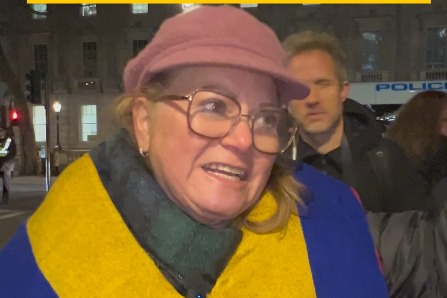Let our cornucopia of inventive talent thrive

HK punched way above its weight at the Geneva inventors' fair, Chow Pak-chin notes, proving the value of the innovation drive
Sonikure Technology may not ring a bell for many people but at the 45th International Exhibition of Inventions in Geneva - held from March 29 to April 2 this year - the young startup, founded by three Hong Kong University of Science and Technology (HKUST) students with different academic backgrounds three years ago, has made its home city extremely proud.
As a beneficiary of research funding from HKUST and the Hong Kong government, Sonikure drew attention at the latest International Exhibition of Inventions with its new invention: ultrasound-enhanced delivery of drugs into the eye via the transscleral route. Simply put, the technology, once made available, will enable the delivery of different types of high-molecular-weight drugs in the treatment of retinal diseases (such as age-related macular degeneration and myopic maculopathy) in a not so invasive technique, using low-frequency, low-intensity ultrasound which showed no side effects during animal testing.
The easy-to-use, highly efficient drug delivery technique will usher in a new era in ophthalmology, ending the current micro-surgery used as a drug delivery method. The current drug delivery method requires a totally sterilized environment in a hospital or clinic but the non-invasive, ultrasound enhanced technique poses fewer constraints in terms of the environment where it can be performed.
In addition to its non-invasive nature, this new invention is music to the ears of many Hong Kong people for another reason: Hong Kong has the highest incidences of myopia in the entire world. While this title as world's No 1 is not something to be proud of, the 60 percent of Primary 6 students and the almost 100 percent of medical students with myopia could perhaps allow themselves some level of hope that their woes would be gone as a result of the new technology. The truth is, myopia is more than just a small inconvenience in life, leaving you constantly looking for your glasses or facing the dreadful task of putting on contact lenses when your eyes are too tired to take them anymore. Myopia above 600 degrees is considered a pathology, and in more severe cases it can even be a blinding disease. More worrying still, Hong Kong is seeing a younger trend of earlier onset of myopia, due both to genetic and environmental factors.

The numerous awards granted to Hong Kong's inventors in Geneva show the colossal inventive prowess of the people in this city. The 1,000 innovations and products exhibited included 11 award winners from Hong Kong Polytechnic University while Baptist University bagged nine awards and the Hong Kong Productivity Council took home five awards - that's 25 awards for Hong Kong's ingenuous minds, which conjured up anything from the ultrasound-enhanced drug delivery technique to a safe, eco-friendly automatic liquid immersion system for rapid food chilling. Not a negligible feat, if you ask me, considering the comparatively small geographic size of Hong Kong and the meager research funding available to the innovative technology industry.
The lawmakers, mass media and members of general public who openly cast doubt on Chief Executive Leung Chun-ying's Innovation and Technology Bureau should be overwhelmed with contrition now. Despite the anti-establishment's disruptive filibusters, the Innovation and Technology Bureau, fortunately, was finally established in November 2015 and has supported the research and development of socially and technologically beneficial ingenuity with its plethora of policies, funds and programs ever since.
But the government is by no means the sole provider of financial resources, neither should it be. In research efforts with practical applications, businesses and corporations will see lucrative opportunities and will therefore invest venture capital for future financial rewards. For research efforts to yield product or technology inventions that help make Hong Kong - and the world - a better place, we need specialists and academia in their respective fields to lead the research. As the Geneva event this year and many before it have proved, there is not a dearth of visionary talent in Hong Kong, with revolutionary designs and ideas already available on their mind maps. Last but not least, effort among the grassroots goes a long way in helping Hong Kong better utilize its gifted inventors too, not least by having non-governmental organizations filling in the gaps wherever the government lacks the capacity or means to.
In their vehement attempt at killing the proposed Innovation and Technology Bureau, anti-establishment lawmakers probably had no inkling of the staggering number of inventive minds in Hong Kong. But then, of course, when you're obsessively stoking up political conflict for the sheer sake of it, why would it occur to you that, with the right government policies and the right amount of funding, one could devise a three-stage food waste recycling system that could fully convert the organic fraction of food waste into three products with high market value - high-purity biogas, protein-rich eco fish feed and quality waste oil for biodiesel production while producing zero wastewater discharge and requiring minimal manual operation, thereby presenting itself as an eco-friendly way to tackle the issue of food waste? These are people who have the genius and capabilities to create life-changing - and oftentimes lifesaving - inventions, and they are certainly deserving of more support from society as a whole.
(HK Edition 05/19/2017 page11)
Today's Top News
- China plans measures to further unlock demand
- No official exempt in anti-graft fight
- US youths called on to advance ties
- Japan urged to mend China ties
- Ice dragon boat race aims to bolster Sino-UK bond
- Proposed snap election in Japan would only be short-term Band-aid





























